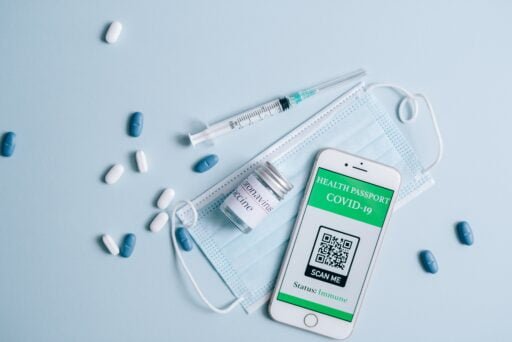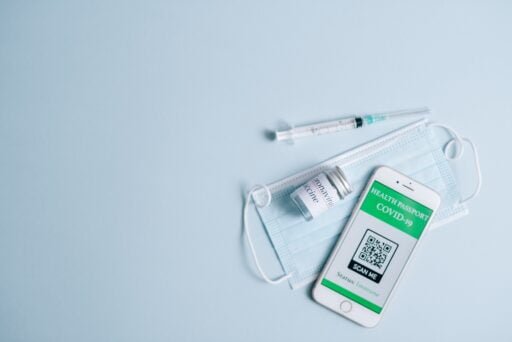You may find yourself wondering if it is possible to become a surrogate if you have depression. This concern is understandable, as you want to ensure both your mental well-being and the best outcome for the intended parents. While depression should not automatically disqualify you from being a surrogate, it is crucial to consider various aspects before making a decision. In this article, we will explore the complexities surrounding surrogacy and depression, and provide you with the necessary information to make an informed choice that considers your emotional health and the needs of others.

Requirements for Surrogacy
Physical health check-up
Before considering surrogacy, it is crucial to undergo a thorough physical health check-up. Surrogacy requires a woman to be in good overall health in order to carry a pregnancy successfully. This includes evaluating your reproductive system, assessing any potential underlying medical conditions, and ensuring that you are physically capable of going through the pregnancy and childbirth process.
Mental health assessment
In addition to the physical health check-up, a comprehensive mental health assessment is equally important. Surrogacy can be emotionally challenging, and it is essential to have good mental health to cope with the ups and downs of the journey. Depression, in particular, can have a significant impact on both the surrogate mother and the intended parents. Therefore, it is vital to assess the current state of your mental health and discuss any concerns with a mental health professional before pursuing surrogacy.
Understanding Depression
Symptoms and impact on daily life
Depression is a mental health disorder that can have a profound impact on an individual’s daily life. Symptoms of depression may include persistent feelings of sadness, worthlessness, or guilt, a loss of interest or pleasure in activities, changes in appetite or sleep patterns, difficulty concentrating, and thoughts of self-harm or suicide. These symptoms can affect various aspects of a person’s life, including their relationships, work or school performance, and overall well-being.
Different types of depression
Depression is not a one-size-fits-all condition, and there are different types of depression that individuals may experience. Major depressive disorder, persistent depressive disorder, postpartum depression, and seasonal affective disorder are just a few examples. It is crucial to identify the specific type of depression you may have, as it can determine the appropriate treatment and support needed.
Effect of Depression on Surrogacy
Risks and challenges
Having depression while considering surrogacy can present unique risks and challenges. Depression may impact your ability to cope with stress, regulate emotions, and maintain a positive mindset throughout the surrogacy journey. The hormonal and emotional changes that occur during pregnancy can potentially exacerbate symptoms of depression, leading to a more challenging experience for the surrogate mother.
Legal considerations
Depression and mental health, in general, may also have legal implications when it comes to surrogacy. Surrogacy agreements often involve legal contracts that address the rights and responsibilities of all parties involved. The intended parents may have concerns about the surrogate’s mental health and its potential impact on the pregnancy, the unborn child, and their own future as parents. It is essential to be aware of any legal considerations related to depression and surrogacy in your particular jurisdiction.
Seeking Professional Help
Consulting with a mental health professional
When considering surrogacy and dealing with depression, it is highly recommended to seek professional help from a mental health expert. A qualified therapist or psychologist can provide valuable guidance and support as you navigate the emotional challenges associated with depression and the surrogacy process. They can help you develop coping strategies, address any underlying issues, and ensure you have the necessary emotional support throughout your surrogacy journey.
Getting clearance for surrogacy
Working with a mental health professional can also facilitate the process of obtaining clearance for surrogacy. They can assess the severity and impact of your depression, determine if it is well-managed and stable, and provide the necessary documentation to demonstrate your mental health readiness for surrogacy. Having this clearance can give both you and the intended parents peace of mind and help ensure the best possible outcome for all parties involved.

Support Network
Importance of strong emotional support
Having a strong support network is crucial for anyone going through a surrogacy journey, especially if they are dealing with depression. Surrounding yourself with understanding and empathetic individuals who can provide emotional support is essential. This support network can consist of family members, friends, fellow surrogates, and mental health professionals who understand your unique situation and can offer guidance, reassurance, and a safe space to express your thoughts and feelings.
Involving loved ones in decision-making
When considering surrogacy, involving your loved ones in the decision-making process can also provide a valuable support system. Discussing your intentions, concerns, and mental health status with trusted family members or close friends can help ensure that you have a strong support system in place during the surrogacy journey. Their understanding and support can make a significant difference in your overall well-being and ability to cope with any challenges that may arise.
Alternative Paths to Parenthood
Exploring other options
If you are concerned about the potential risks and challenges that depression poses to surrogacy, it is worth exploring alternative paths to parenthood. Adoption and foster care are two viable options that allow individuals or couples to become parents without going through the surrogacy process. These alternatives can provide a fulfilling and loving opportunity to create a family and may be a better fit for those dealing with depression.
Adoption or foster care
Adoption and foster care can bring immense joy and fulfillment to individuals or couples who are unable to conceive or carry a pregnancy. It is essential to thoroughly research and understand the requirements and legal processes involved in adoption or foster care, as they can vary depending on your location. Consulting with adoption agencies or foster care agencies and seeking professional advice can help you make an informed decision about the best path to parenthood for you.

Self-Care and Coping Strategies
Managing depression during the surrogacy journey
Coping with depression during the surrogacy journey requires a commitment to self-care and the implementation of effective coping strategies. This can include engaging in regular exercise, maintaining a healthy diet, getting enough sleep, and practicing stress reduction techniques such as meditation or mindfulness. It is important to listen to your body, prioritize self-care, and reach out for professional support whenever necessary.
Importance of self-care practices
Self-care practices are not only essential for managing depression but also for maintaining overall well-being during the surrogacy journey. Taking time for yourself, engaging in activities that bring you joy, seeking therapeutic support, and setting boundaries are all crucial components of self-care. By prioritizing your own physical and mental health needs, you can better navigate the emotional challenges that may arise during the surrogacy process and ensure a more positive experience overall.
Emotional Preparedness
Considering the emotional toll on the surrogate
Emotional preparedness is vital for any surrogate, and it becomes even more critical when dealing with depression. It is crucial to recognize that surrogacy can be emotionally demanding, both physically and mentally. Understandably, depression may intensify these emotions, making it essential to assess your emotional readiness before committing to the surrogacy journey. Taking the time to reflect on how you may respond to various situations and seeking professional guidance can help you make an informed decision about whether surrogacy is the right path for you.
Availability of mental health resources
Recognizing the potential impact of depression on the surrogacy journey, it is important to consider the availability of mental health resources. Prior to starting the surrogacy process, research mental health professionals, support groups, and other resources in your area that specialize in providing care for surrogates dealing with depression. Having access to these resources can be invaluable in helping you navigate the emotional challenges that may arise throughout the journey.
Legal Considerations
Surrogacy laws and regulations
Surrogacy laws and regulations vary significantly from one jurisdiction to another. It is essential to familiarize yourself with the specific laws and regulations that apply to surrogacy in your location. Some jurisdictions may have restrictions or requirements related to mental health and depression, while others may have a more open approach. Understanding the legal landscape can help you make informed decisions and ensure compliance with any legal requirements.
Requirements for approval
Depending on your jurisdiction, there may be specific requirements for approval as a surrogate. These requirements typically include physical and mental health evaluations to ensure that you are fit to carry a pregnancy and emotionally prepared for the surrogacy journey. It is important to carefully review these requirements and consult with legal professionals to ensure that you meet all necessary criteria for approval.
Conclusion
Deciding to become a surrogate while dealing with depression is a significant decision that requires careful consideration and consultation with mental health professionals. While depression can present unique challenges, it does not necessarily preclude someone from pursuing surrogacy. By addressing and managing your mental health, seeking support, and understanding the legal considerations, you can make an informed decision about whether surrogacy is a viable option for you. Remember that your mental health and overall well-being should always be the top priority, and consulting with professionals and loved ones throughout the process will help ensure the best outcome for everyone involved.